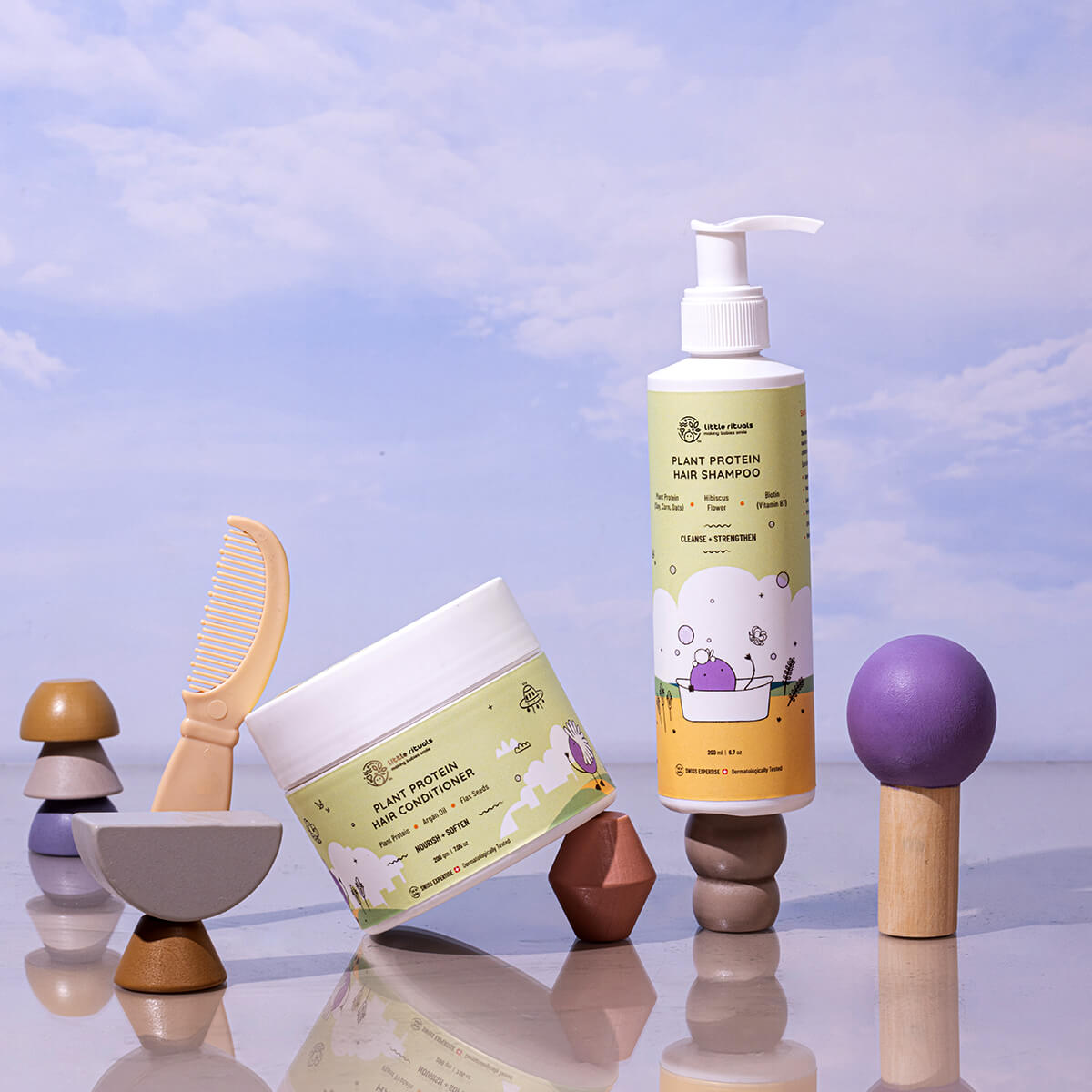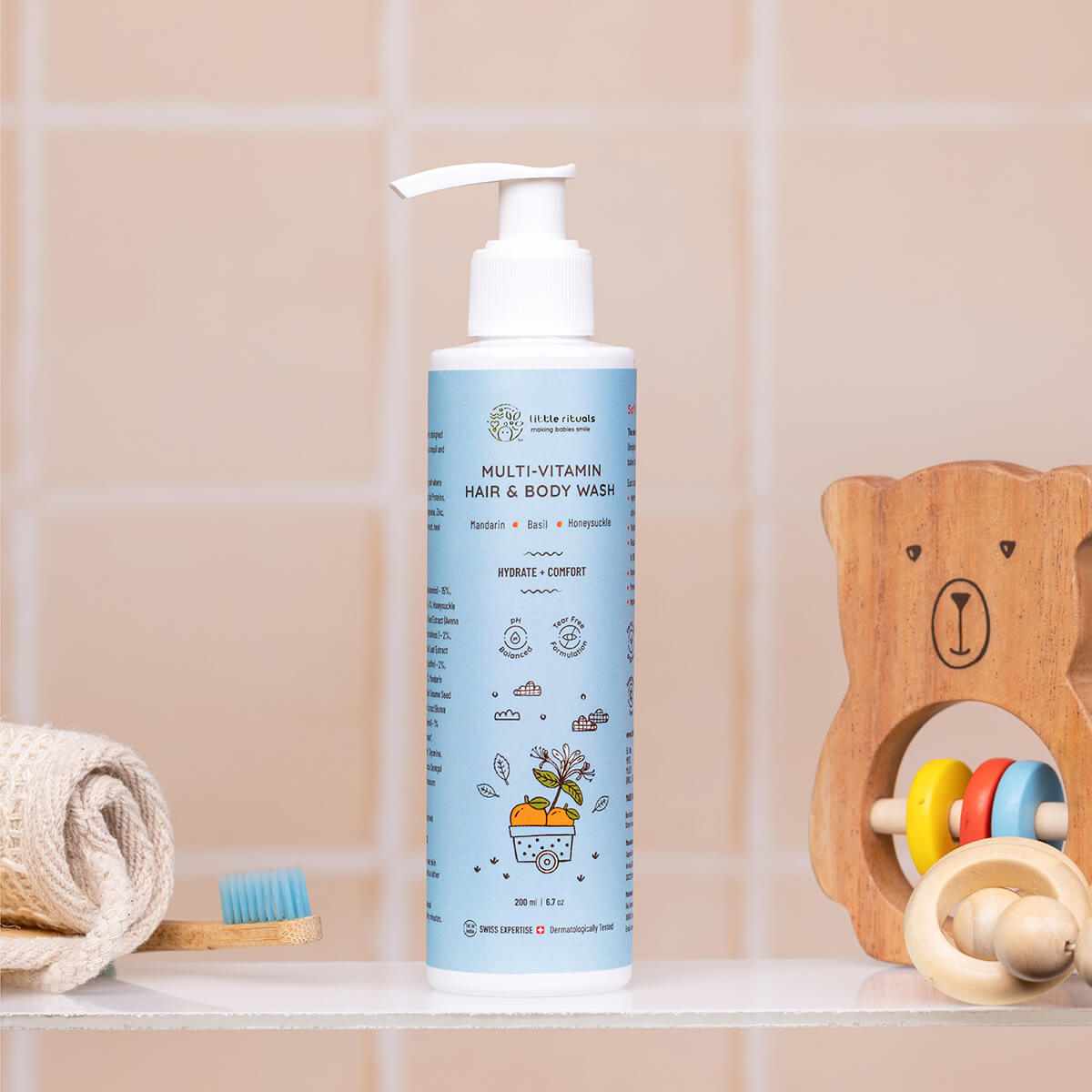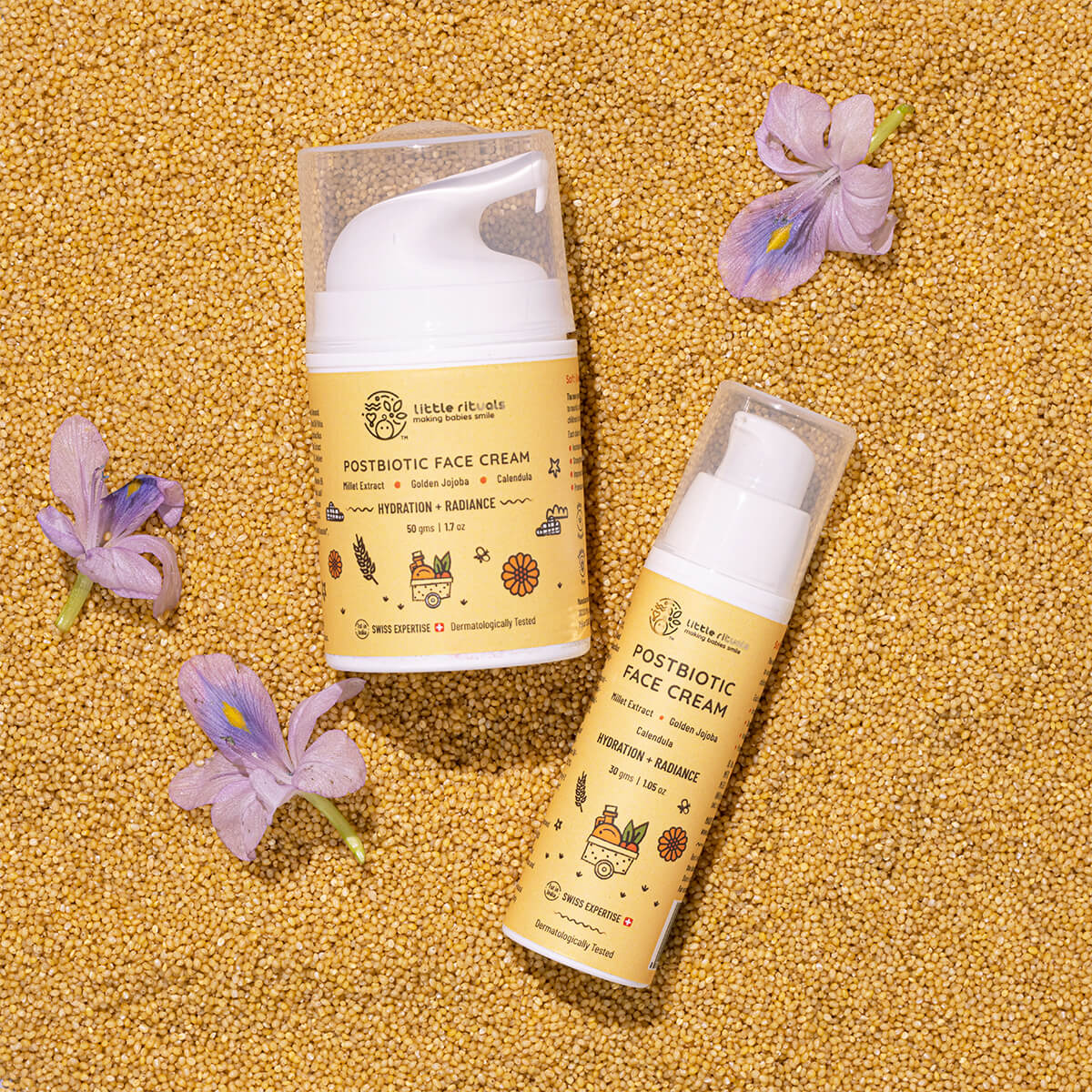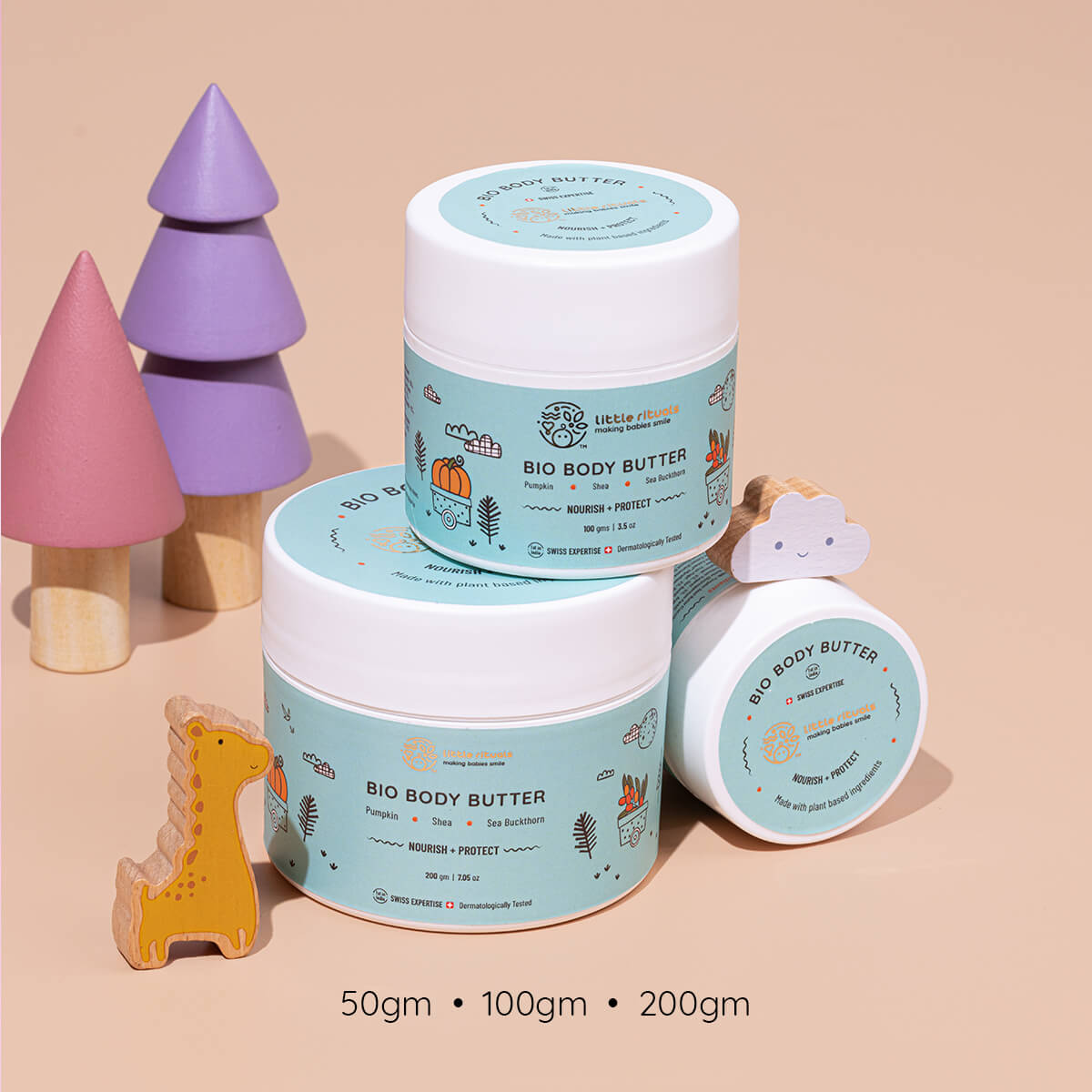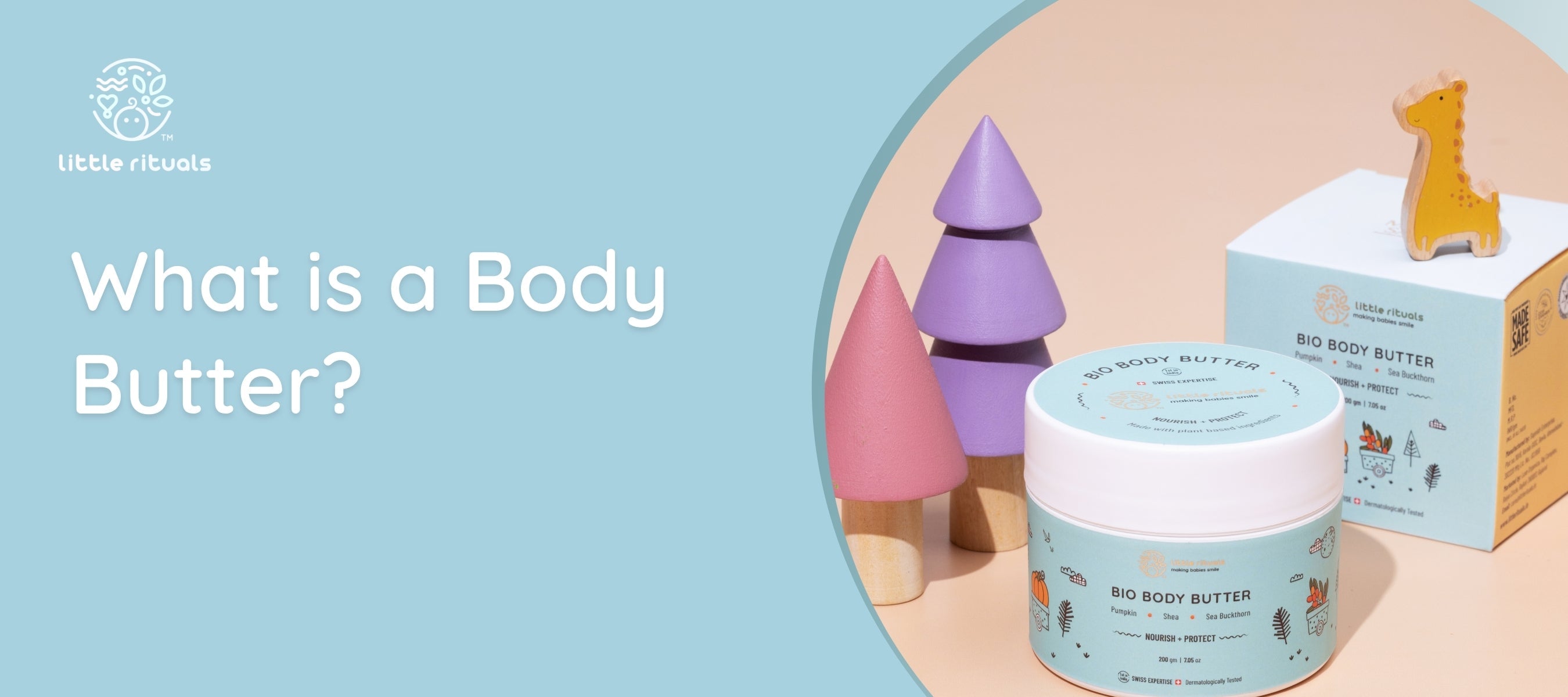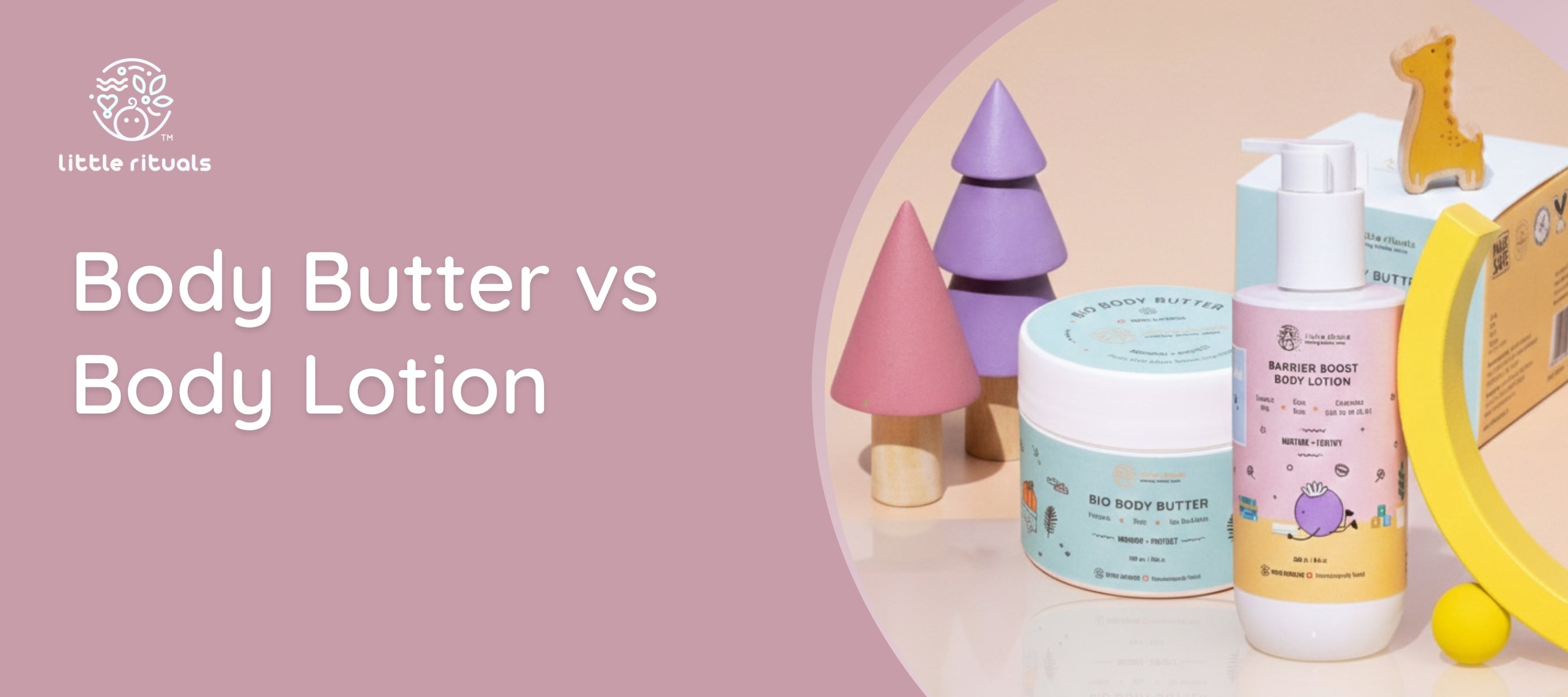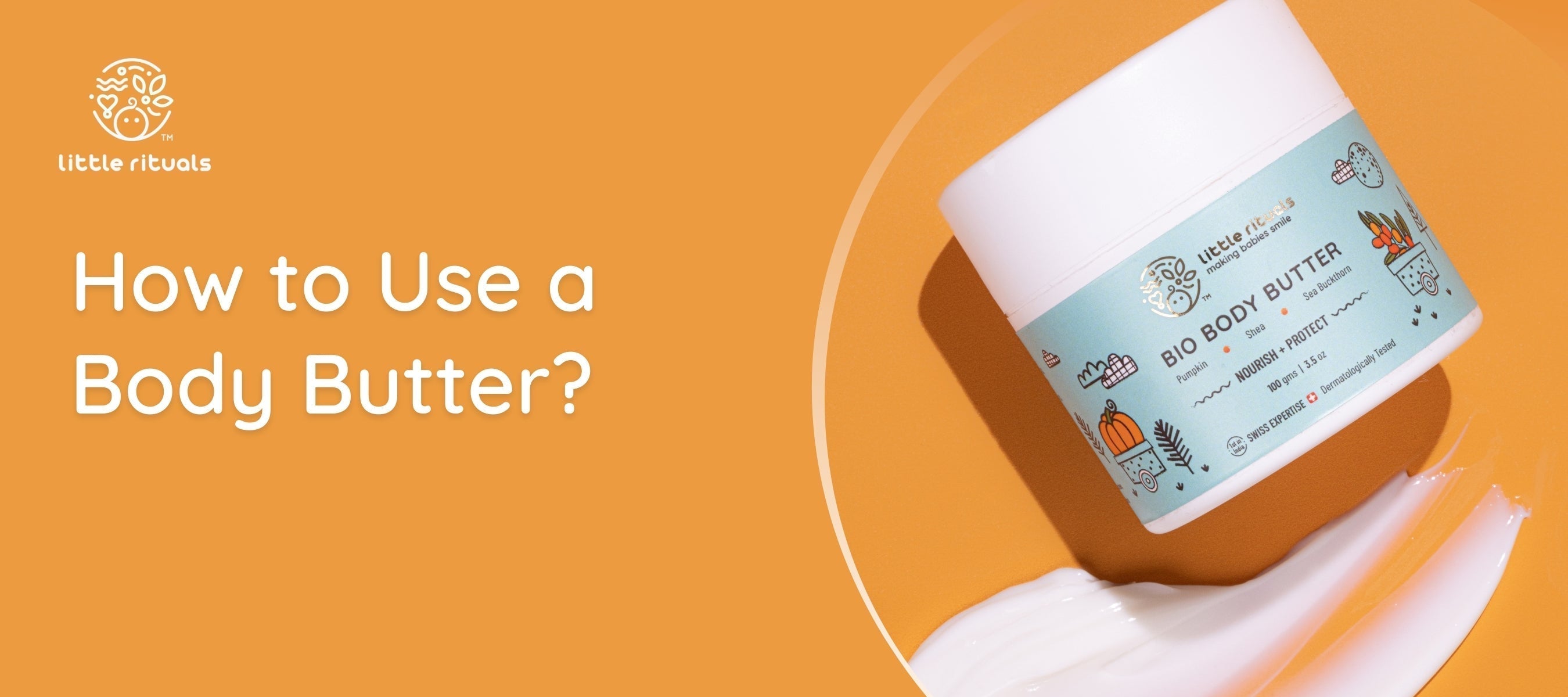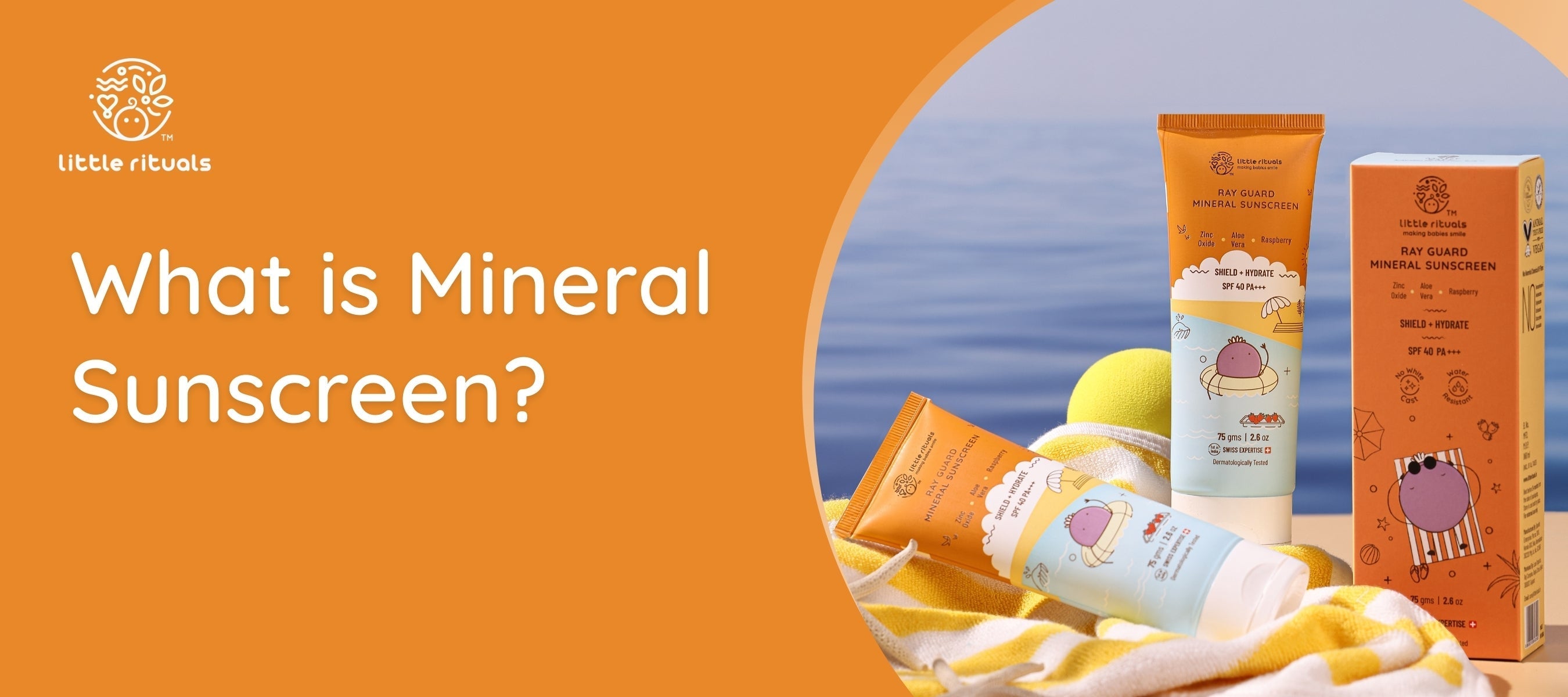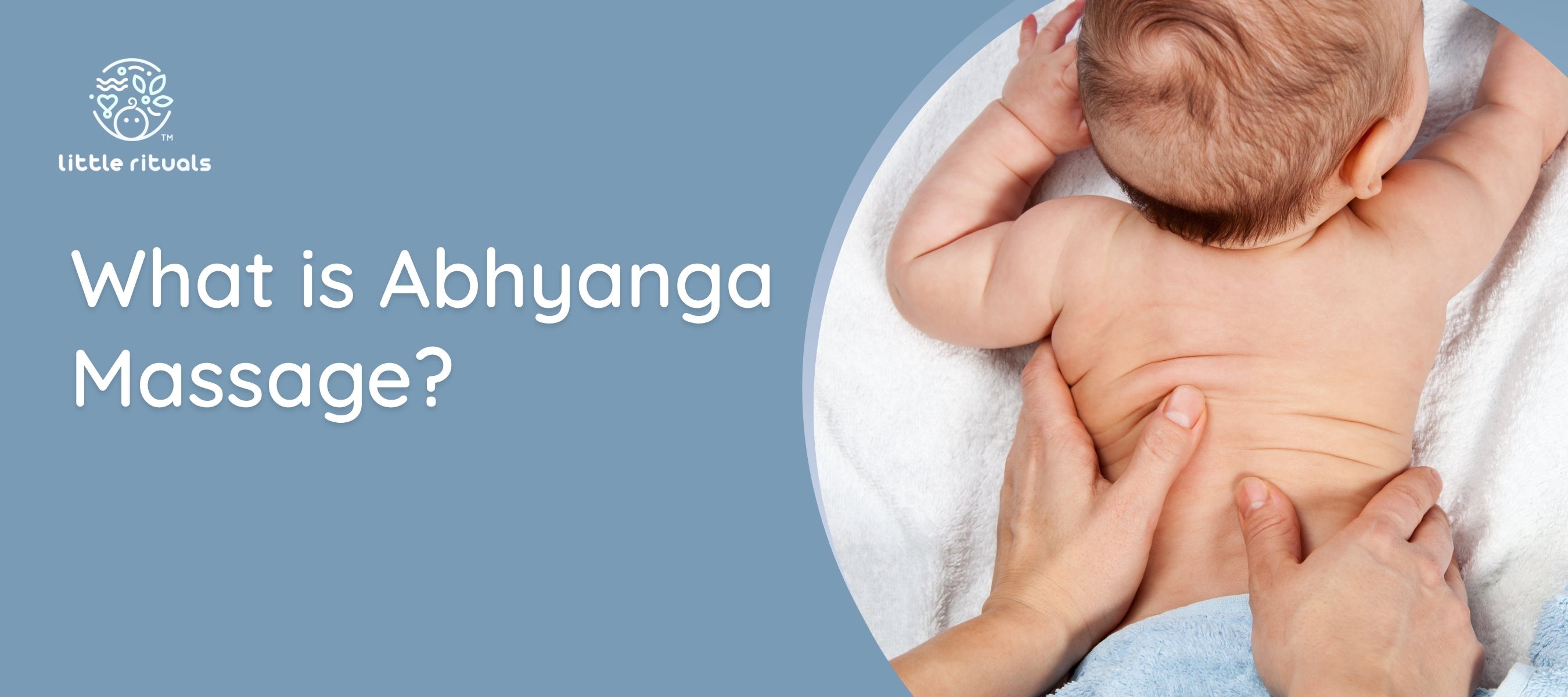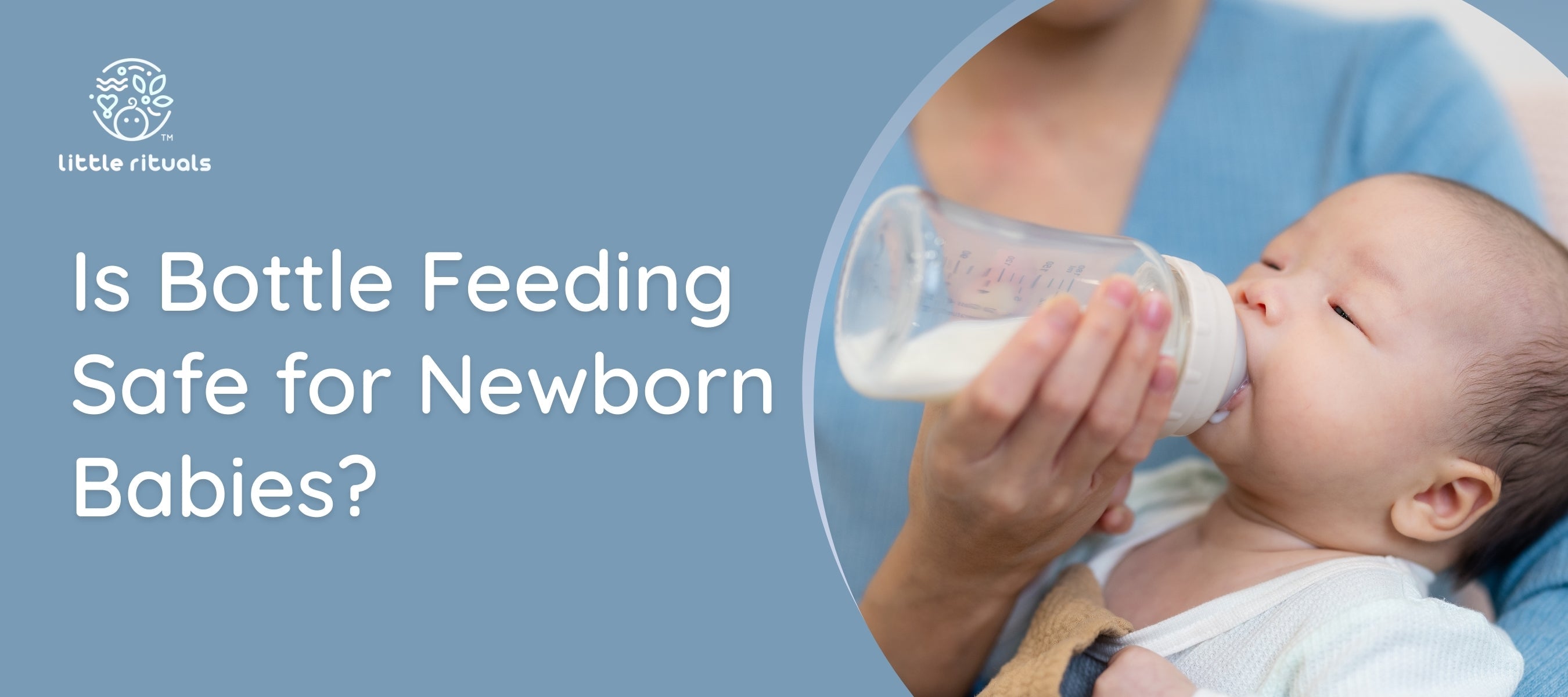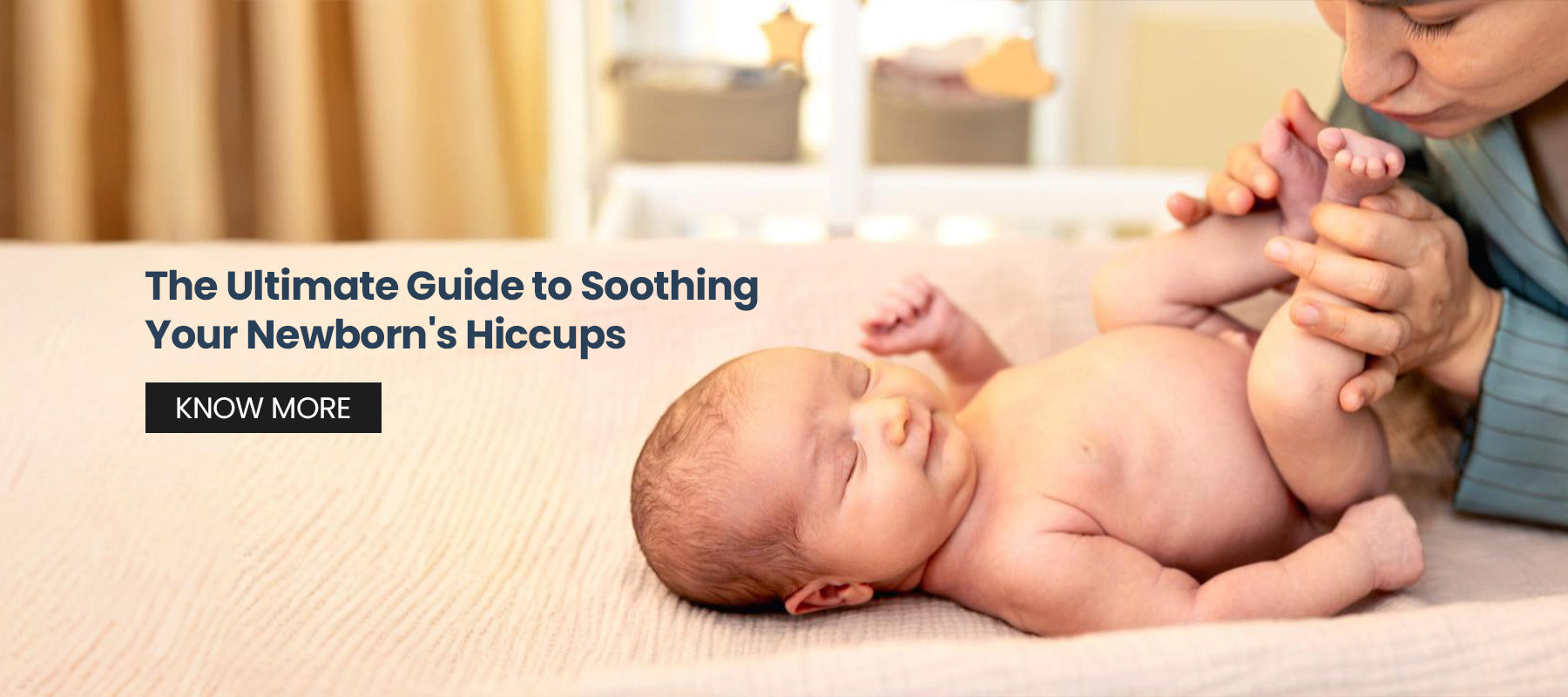
The Ultimate Guide to Soothing Your Newborn's Hiccups
Welcoming a newborn into your life is a joyful, heartwarming experience filled with countless precious moments. However, it also brings a fair share of new challenges and worries. Among these concerns, one that often puzzles new parents is hiccups in newborn babies. While they may seem alarming at first, baby hiccups are a common and usually harmless occurrence.
Understanding baby hiccups and knowing why babies get hiccups can help you feel more at ease. Let’s dive into some simple and effective remedies for hiccups.

Why Do Babies Get Hiccups?
Hiccups in babies occur when the diaphragm, a muscle that helps with breathing, suddenly contracts. This contraction causes the vocal cords to close briefly, producing the characteristic “hic” sound. But why do babies get hiccups so frequently?
Here are some common reasons:
Feeding Patterns
Newborns are known to feed frequently and in varying patterns, and hiccups can occur due to how they eat. Overfeeding, feeding too quickly, or swallowing air during feeding can all lead to hiccups in newborn babies. When a baby feeds too quickly or swallows too much air, the stomach can become distended, leading to spasms in the diaphragm. This often results in hiccups.
Temperature Changes
Sudden changes in the baby's body temperature can trigger hiccups. For example, when babies are exposed to a cooler environment after being in a warm one, or if their body temperature fluctuates rapidly, their diaphragm might spasm, causing a hiccup.
Excitement or Stress
Just like adults, babies can experience emotions that affect their bodies. Strong emotions such as excitement or stress can sometimes cause the diaphragm to spasm, leading to hiccups. Though this is less common than the other triggers, it’s still a factor to keep in mind.
Related Read: Teething Timeline: When to Expect Your Baby's First Tooth
Remedies for Hiccups in Newborn Babies
Now that we understand why babies get hiccups, let’s explore some practical and gentle remedies for hiccups. These methods are designed to soothe your little one without causing any discomfort.
Pause and Burp
During feeding, take breaks to burp your baby. This can help release any trapped air in the stomach that might be causing the hiccups. Burping your baby regularly during feeds can also prevent hiccups from happening in the first place. You can try burping them after every 2–3 ounces of milk or when you notice them swallowing air.
Change Feeding Position
Keeping your baby in an upright position during and after feeding can help prevent hiccups. Gravity can assist in keeping the milk down and help to prevent any air bubbles from traveling into the stomach, which can lead to hiccups. Hold your baby in an almost vertical position for about 15–20 minutes after each feed.
Use a Pacifier
Sucking on a pacifier can help relax the diaphragm and stop the hiccups. The rhythmic sucking motion may help soothe the baby and encourage the diaphragm to return to normal. If your baby enjoys pacifiers, this can be a great way to ease their discomfort.
Rub Their Back
Gently rubbing your baby’s back in a circular motion can soothe the diaphragm and ease the hiccups. The calming motion can relax your little one, providing comfort and helping to relieve the hiccups. Be gentle with your touch and avoid applying too much pressure.
Check for Overfeeding
Ensure that you are not overfeeding your baby. Smaller, more frequent feedings might help. Overfeeding can stretch the stomach and lead to hiccups. If you feel your baby is eating too much, consider reducing the amount of milk per feed and offering it more frequently throughout the day.
Keep Your Baby Warm
Make sure your baby is comfortably warm. Sudden changes in temperature can cause hiccups. Keeping your baby’s body temperature steady by dressing them appropriately for the weather or using a swaddle can help prevent newborn hiccups triggered by temperature changes.

When to Worry About Hiccups
While hiccups in newborn babies are generally harmless, there are a few situations where you might want to seek medical advice:
- Persistent Hiccups: If the hiccups last for an extended period (more than an hour) or seem to bother your baby, it might be a good idea to consult a pediatrician.
- Feeding Difficulties: If your baby is having trouble feeding due to hiccups or if hiccups are causing discomfort or vomiting, seek medical advice.
- Signs of Illness: If hiccups are accompanied by other signs of illness, such as fever, lethargy, or unusual behavior, contact your doctor.
Conclusion
Hiccups in newborn babies are a common and usually harmless occurrence. Understanding why babies get hiccups and knowing some simple remedies for hiccups can help you soothe your little one effectively. If the hiccups persist or seem problematic, don’t hesitate to consult a pediatrician to ensure your baby’s health and well-being.
Additionally, for gentle and nurturing skincare for your baby, consider Little Rituals skincare products. Using our wood-pressed organic coconut oil, you can massage your baby’s back to soothe the diaphragm and ease hiccups. Our products are specially designed to care for your baby’s delicate skin, offering soothing comfort in every touch.
FAQs
Are hiccups harmful to babies?
No, hiccups in babies are generally harmless and don't usually cause discomfort. In fact, they often resolve on their own with no need for intervention.
Can I prevent my baby from getting hiccups?
While you can’t always prevent hiccups, feeding your baby slowly and burping them regularly can help minimize their occurrence. Avoiding overfeeding and using the right bottle nipple can also reduce the chances.
Should I be worried if my baby's hiccups last a long time?
If hiccups last for more than a few hours or seem to bother your baby, it’s best to consult a doctor. Long-lasting hiccups may be a sign of a more serious issue.
Can pacifiers help with hiccups?
Yes, sucking on a pacifier can help relax the diaphragm and stop hiccups. The sucking motion has a calming effect on many babies, helping to resolve hiccups.
Can certain foods cause hiccups in breastfed babies?
Sometimes, foods that cause gas in the mother can affect the baby, leading to hiccups. If you suspect that certain foods may be the cause, try eliminating them from your diet and see if the hiccups reduce.
